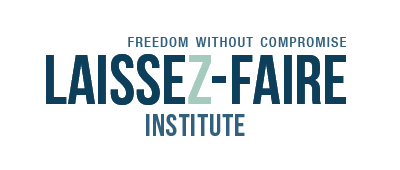“The worst thing that can happen to a good cause is, not to be skillfully attacked, but to be ineptly defended”, wrote Frederic Bastiat. The case of bank secrecy and tax competition is a good example thereof.
All too often, they are defended only on the basis of Switzerland's economic interests. The only ones to take position on the subject under the perspective of justice or morality are, unfortunately, the opponents of tax competition and bank secrecy - and nobody contradicts them on this point. This then allows them to monopolize the field of ideas and control the vocabulary on the subject, and thus to present the debate in a completely biased way. It is thus quite significant that terms such as "tax evasion" and "tax haven" have come to have a negative connotation - as if "tax prison" or "tax hell" were desirable situations.
Most defenders of bank secrecy and tax competition thus accept the ideological premises of their opponents, unavoidably finding themselves in a weak position. In short, according to this view, tax evasion is indeed to be deplored, yet it is better for that money to go to Switzerland than somewhere else. Bank secrecy sure is immoral, but our banks do need it, for instance in order to "preserve jobs". But of course, they would gladly give it up if other countries were to do the same. As the steady erosion of financial privacy shows, this pragmatic, compromising position, cannot last: in the long run, consistency wins.
Opponents of tax competition present it as an unfair undercutting, a destructive struggle between nations leading to the dismantlement of the welfare state, to a levelling down of public services. However, tax competition means nothing more than setting states in competition with one another. Economically, this is a means of promoting efficiency, morally, a means of ensuring a diversity of choice and better protection of property, and politically, a means to limit the naturally expansionist tendency of States.
What is immoral, is not tax evasion, but confiscatory and arbitrary taxes, which fund for the most part expenditures that shouldn't even be made by the State in the first place. It is therefore perfectly moral and legitimate to seek to protect one's income from taxes, whether by working in one canton and living in another more interesting fiscally, by putting one's money wherever it is the most protected, or by paying the least possible amount in taxes by taking advantage of the various opportunities of tax avoidance. In addition, tax avoidance also helps others: it puts a limit on the taxing power of states, and can often force them to lower everyone's taxes.
Bank secrecy is therefore certainly not immoral merely because it facilitates tax avoidance. But more fundamentally, bank secrecy is a simple consequence of a right to privacy that goes without saying in many other areas.
Criticisms against bank secrecy usually rely on the myth of the good citizen supposed to have nothing to hide: therefore, he should have nothing to fear from the proliferation of surveillance cameras, the abolition of bank secrecy, or the ongoing extension of the powers of the State to control him, to search him, to read his mail, to listen to his phone conversations, etc.
However, we do not wander naked on the streets, we put curtains on our windows, we cherish our medical confidentiality and we do not publish our wages. That doesn't imply our “having something to hide”, or our being ashamed of our bodies, of what is going on in our homes, of our medical affections or our incomes. It simply means that we value the respect of our privacy and our right to decide by ourselves which information about ourselves we wish to share and with whom. Which allows us, for instance, to avoid others using information about us to harm us.
Besides, there is another reality too often forgotten: the State is not always right, and its laws are not always just. Let's not forget that most states around the world are not rule of law states, that they have laws that are not necessarily respectful of human rights, and that even states who claim to protect freedom don't always actually do it, already today, and are even less likely to do so tomorrow. It is illustrative in this regard that a state considered safe and claiming to be a defender of liberty would actually use outrageous threats against a Swiss bank.
Bank secrecy was passed into Swiss law in 1934, and has helped to protect from persecution savers living under the dictatorships that dominated Europe at the time. Savers who wished to keep their funds safe, usually illegally by the way, practicing not only tax avoidance, but also illegal capital export, in a world then plagued by protectionism and foreign exchange controls, following the Great Depression. Let's hope that the current world situation isn't that bad yet...
It would be a very unfortunate loss to abandon bank secrecy under the duress of pressures obviously coming from states with ulterior motives - seeking either, as the United States, to obtain more tax revenue to finance their overblown public spending, or, as Great Britain, to defend the interests of their own financial centers. It would be equally unfortunate to abandon it provided that the rest of the world would do likewise: in a world where there would be no one but Switzerland to practice bank secrecy, it would be all the more necessary to preserve it here. And not merely for the obvious boom that it would be for the banking sector.

